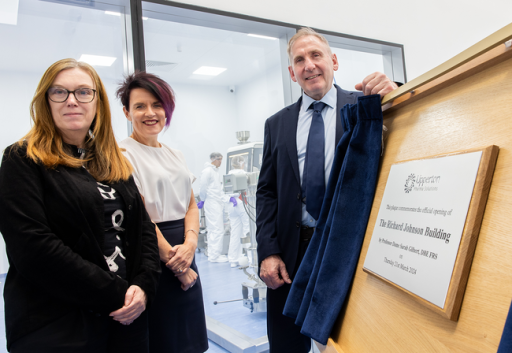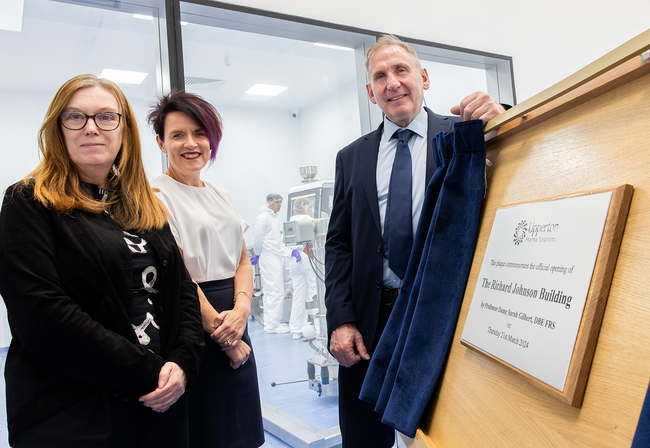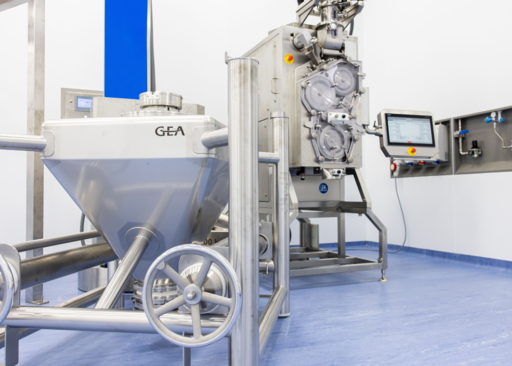Upperton Pharma Solutions, a leading UK-based CDMO, celebrated the inauguration of its expansive 50,000 square foot development and GMP manufacturing facility in Nottingham. The event was graced by the co-inventor of the Oxford/AstraZeneca COVID-19 vaccine, Professor Dame Sarah Gilbert, alongside esteemed biotech industry figures and local dignitaries.
The unveiling of the commemorative plaque saw contributions from local MP Darren Henry and notable industry experts.
Nikki Whitfield, CEO of Upperton Pharma Solutions, expressed her enthusiasm about the opening: “This celebration marks another milestone in our incredible growth journey as a business. We are looking forward to officially opening our doors to customers and offering a single site solution for development and GMP manufacturing.”
Guest of Honour, Professor Dame Sarah Gilbert, Principal Investigator at the Pandemic Sciences Institute, University of Oxford, and co-creator of the Oxford/AstraZeneca COVID-19 vaccine, shared her delight at the event, stating, “It was a pleasure to join Upperton for the grand opening of their new facility. During the pandemic we saw the importance of academia and industry working closely together to deliver life-saving vaccines and treatments. Upperton’s expansion into this new site is a great example of the crucial role UK-based pharmaceutical organisations have to play in addressing global health challenges. I look forward to collaborating with Upperton in the future.”
The state-of-the-art facility boasts ten GMP manufacturing suites, advanced quality control laboratories, and formulation development amenities, including a pilot plant. This enables Upperton to provide a comprehensive range of services from early formulation development through to clinical trial supplies for Phase 1 to Phase 3, and niche scale commercial production, all under one roof.
The formal opening of the facility is a significant achievement for Upperton, following the announcement and the ongoing construction of an adjacent sterile facility dedicated to the production of aseptic and terminally sterilised small volume liquids for parenteral, ocular, and pulmonary applications, scheduled for completion by the end of 2024.







